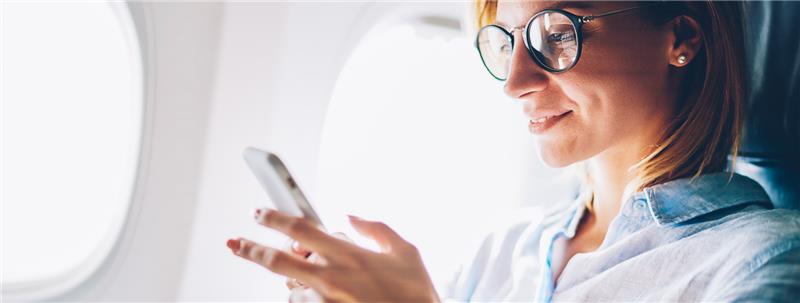Business traveling is a mixed bag. While it can certainly be productive, more often than not it’s also a pain. And when you add cyber security considerations into the mix, it can get downright stressful.
We work with quite a few companies with remote workforces. Additionally, as IT business consultants, we have regular contact with frequent business travelers on a daily basis. As a result, we’re well-versed in some of the dos and don’ts of secure business travel.
What follows are our top 10 tips for keeping your data safe while you’re out of town.
Traveling tips for data security
Before we get to the tips, a word of warning. Some of these are going to seem extreme. If you’ve never given much thought to cybersecurity when you’re not connected to a known network, our tips might even seem paranoid.
That’s because for the purposes of this article we only care about one thing—keeping your data safe. If you’re serious about guarding your data on the road, this is how you do it.
1. Stay away from mobile hotspots
Public Wi-Fi is dangerous, pure and simple. In fact, a recent article in CSO stated, “Today’s Wi-Fi standards are flawed and should not be trusted.”
The article went on to explain exactly why public Wi-Fi should be avoided at all costs. “One of the biggest threats with free Wi-Fi is the ability for hackers to position themselves between you and the connection point.” That includes data you might think is encrypted.
2. Use a VPN to encrypt data traffic
A VPN is like your own personal secure connection. With one, your mobile devices are linked directly to a private
server and all the data exchanged between the two is encrypted. That of course, adds a significant layer of security.
However, be sure you pick a VPN service you trust. The VPN service provider can see your traffic, so steer clear of questionable free providers.
Read more: How to set up a VPN
3. Encrypt your mobile devices in case they’re lost or stolen
Most smartphones and laptops with an up to date OS will give you the option to encrypt all local data, do it. That way, even if you lose your phone or your laptop is stolen, all your information is safe and sound. And if you’re wondering just how strong consumer encryption options are, even the FBI has a very hard time bypassing this form of protection.
4. Use privacy screens to avoid shoulder surfing in public spaces
Privacy screen protectors (like this one make it difficult for anyone but the person holding a smartphone or sitting directly in front of a laptop to read what’s on the screen. This added layer of security means you don’t have to worry about anyone else seeing your private information, even accidentally.
If your work includes particularly sensitive information, like medical records or other data protected by strict regulatory laws, this is a must-have precaution.
5. Use a wall plug charger instead of public USB ports
Public USB ports are just as dangerous as public Wi-Fi networks—which, when you think about it, makes sense. After all, you’re connecting your device to a public network, even if your only goal is to charge your phone.
Instead of using a public USB port, opt for a standard wall outlet for charging or better yet carry your own power with a portable battery pack.
6. Don’t share that you’re traveling on social media
It’s perfectly fine to share that you were on a trip once you’re back in town. But it’s ill-advised to post that you’re out of town while still traveling. (That’s true for business trips and vacations alike.)
Why? Because you’re advertising that your home, office, car, and local business network are all unwatched for a while. That’s like an invitation for thieves.
7. Disable Bluetooth connectivity
The great thing about Bluetooth is how quickly and easily it connects our devices. Unfortunately, that’s what makes it unsafe, too.
Cybercriminals can use an open Bluetooth connection to gain access to your device, especially in crowded areas like airports. Turn it off while you’re on the road.
Related: Shadow IT and the impact it can have on your business
8. Setup multi-factor authentication for your online accounts
Multi-factor authentication (MFA) is a simple, secure way to ensure a user is actually authorized to access an account when a new login is attempted. Even if you have the password, you typically have to enter an additional code delivered via text message or email.
While a lot of services offer multi-factor authentication, the trick is that you have to set it up. It’s absolutely worth
the minor hassle.
9. Consider using encrypted text >messaging
Encrypted chat apps like Signal and WhatsApp give you the ability to send and receive text messages as effortlessly as the default app on your phone with one added benefit—the data is entirely encrypted.
However, while WhatsApp is the best known encrypted chatting app, it’s also owned by Facebook, and that brings with it a whole new set of privacy and security concerns. That’s why we recommend Signal.
10. Update the software on your laptop and phone
Time and again, headline-making data breaches uncover the same annoying truth. Updating your software really does keep you safe.
Update your apps. Apply software patches. Don’t fall victim to a security breach simply because you weren’t up-to-date.
Ready for a Better IT Experience?

